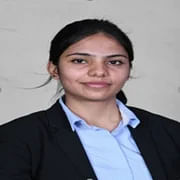Ph.D in Sanskrit Syllabus and Subjects

PhD in Sanskrit curriculum includes subjects such as documentation, language learning, etc., among others, which aid in providing advanced knowledge and understanding of the course. The PhD in Sanskrit job scope is extensive, ranging from translator, and novelist to lecturer.
Table of Contents
- Semester Wise PhD Sanskrit Syllabus
- PhD in Sanskrit Subjects
- PhD in Sanskrit Course Structure
- PhD in Sanskrit Teaching Methodology and Techniques
- PhD in Sanskrit Projects
- PhD in Sanskrit Books
Semester Wise PhD Sanskrit Syllabus
The PhD Sanskrit syllabus covers all the topics needed to understand the course. The PhD in Sanskrit course is divided into six semesters and covers a wide range of topics. The PhD in Sanskrit subjects for each semester are listed below:
PhD in Sanskrit First Year Syllabus
The first-year subjects for the PhD in Sanskrit are listed in the table below, divided into the first and second semesters:
|
Semester I |
Semester II |
|
Fundamentals of Research |
Language Learning |
|
Documentation |
Origin and Documentation of Sanskrit Language |
|
Research Techniques and Methodology |
Computer |
|
Manuscriptology |
- |
PhD in Sanskrit Second Year Syllabus
The second-year subjects for the PhD in Sanskrit are listed in the table below, divided into the third and fourth semesters:
|
Semester III |
Semester IV |
|
Vedic Culture and Literature |
Classic – Modern Sanskrit Literature |
|
Vedanga Literature |
Literary Texts |
|
Puranetihaasa: Arshamahakavyas |
Advance Research Methodology |
PhD in Sanskrit Third Year Syllabus
The third-year subjects for the PhD in Sanskrit are listed in the table below, divided into the fifth and sixth semesters:
|
Semester V |
Semester VI |
|
Mahabharata |
Darsana |
|
Independent Research with Seminars-I |
Book & Article Review |
|
- |
Independent Research with Seminars-II |
PhD in Sanskrit Subjects
Over the course duration, students in the PhD in Sanskrit course get a broad understanding of a range of subjects. The course is structured into core and elective topics. The following subjects will be covered in the PhD in Sanskrit course:
PhD in Sanskrit Core Subjects
The following are the core PhD in Sanskrit subjects that all students must take:
- Research Methodology
- Manuscriptology
- Computer Application in Sanskrit
- Language Learning
- Documentation
- Literary Text
PhD in Sanskrit Elective Subjects
The following are the elective PhD in Sanskrit subjects that all students can take:
- Veda
- Darsana
- Vyākaraṇa
- Purāṇa & Āyurveda
- Modern Sanskrit Literature
PhD in Sanskrit Course Structure
The PhD in Sanskrit course is designed in a way that supports students' learning, exposure to practical situations, and development of critical skill sets. Over the course duration, the course is divided into core and elective subjects. The sections of the PhD in Sanskrit course are as follows:
- VI Semesters
- Core Subjects
- Elective Subjects
- Research and Thesis
- Internship
- Seminars
- Project Work
PhD in Sanskrit Teaching Methodology and Techniques
One must have a thorough awareness of the Ph.D. in Sanskrit teaching methodologies and approaches in order to completely understand the course. A variety of teaching techniques are used in the PhD in Sanskrit course, some of which are described below:
- Traditional Lecturers
- Practicals
- Guest Lectures, Seminars, and Workshop
- Group Assignment and Discussion
- Research & Development
PhD in Sanskrit Course Projects
Projects gain a significant amount of focus in the PhD in Sanskrit course since they give teachers the chance to assess students' performance and subject understanding. The following is a list of some of the most popular PhD in Sanskrit projects:
- Study of Ramanaya and Maharabarata in the world
- Sanskrit Writing and Speaking in the World Scenario
- Exploring Theological Discourse on Peaceful Co-existence through Text analysis
- A Critical Study of Shivarajyabhishekaprayogah of Gagabhatta
PhD in Sanskrit Course Books
PhD Sanskrit syllabus is extensive and the books provide students with both a thorough general review of the subject matter and a close examination of their specific area of expertise. The following are some of the books for reference:
|
Name of Book |
Author |
|
The Cambridge Introduction to Sanskrit |
A.M. Ruppel |
|
Devavanipravesika: An Introduction to the Sanskrit Language |
Robert P. Goldman |
|
Critical and Comparative Study of the Pratisakhyas |
Chhaya Banerjee |
|
Caitanya Biographics by Kavi Karnapura |
Dr. Ira Haldar |
|
Sanskrit Language Grammar and Meaning |
Dr.KarunaSindhu Das |
